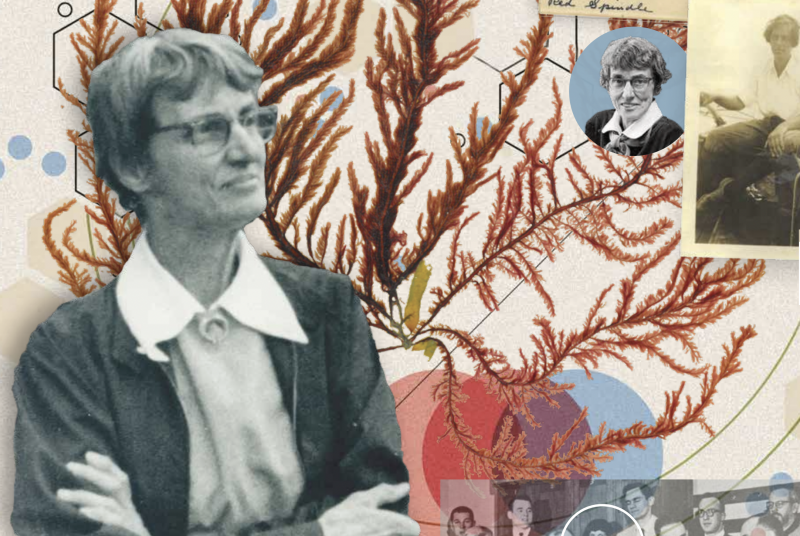
Long Time Coming
When Hannah Croasdale began working at the College in 1935, she had a doctorate in biology from the University of Pennsylvania and prior teaching experience at the Woods Hole Marine Biological Laboratory.
Dartmouth hired her as a lowly lab technician.
She mentored generations of future scientists and published numerous papers on her research, which gained her international renown. She cofounded and eventually became president of the nation’s leading organization devoted to the study of algae. But it was not until 1959 that Dartmouth promoted her to assistant professor—24 years after she was hired. Leonard Rieser, dean of the College, helped push for her promotion, and his memos reveal how some of the faculty treated her: “Professor Ballard requires her to make slides for his own research, even during vacations. Professor Arnold expects her to supervise the shelving of microscopes, the feeding of mice. She has accepted this for two decades.” Rieser noted that Croasdale’s salary was 60 percent of what other profs made and that she had to supplement her income by illustrating textbooks on the side.
In 1964, Croasdale became the first woman to receive tenure at Dartmouth.
I learned about Croasdale’s story after my freshman year. The library’s new historical accountability student research fellowship offered grants for students to “confront and learn from the past” and to shine light on unknown aspects of Dartmouth’s history, including its darker, less-inclusive moments. The program, inspired by the College’s Inclusive Excellence Initiative and now in its fourth year, offers up to $8,000 for each full-time, one-term position. As the first research fellow, I worked at Rauner library, combing through Croasdale’s letters, algae samples, slides, memos, photos, receipts, and even Christmas cards. I wrote a 31-page report and a blog post and organized a library exhibit.
I was haunted by Croasdale’s experience and how the College had treated her for so many years.
My 10-week crash course sent my academic interests and career in a new direction. I was haunted by Croasdale’s experience and how the College had treated her for so many years. Her story changed my take on campus spaces. I learned that her office—when she finally got one—was in the basement of Silsby Hall, directly across from the lecture room where my first class was held. As a freshman I had walked past that little room every day, ignorant of its former occupant. Similarly, I regularly passed by a silver bowl displayed in Collis without noticing that it is the Hannah Thompson Croasdale Award, annually presented to the person who has made the most significant contribution to the quality of life for women at Dartmouth. Her legacy surrounded me.
Croasdale died a week before I was born, but I feel I have come to know her through my research and people who knew her. Dartmouth biology professor Celia Chen ’78, one of her former students, told me that Croasdale’s mentorship made all the difference in her own career. “You see someone, and if they are doing something, then you know it’s possible. Hannah being a female faculty member made my own career aspirations look possible.” During a visit with Chen in her office, I noticed an unassuming cardboard box on her shelf that contained corked glass vials. I immediately recognized the beautiful pencil scrawl on the box as Croasdale’s handwriting, matching the letters I’d seen at Rauner.
As a senior I turned the stories of Croasdale and women like her into the beginnings of a novel for my creative writing thesis. For its title I chose to use her advice to those hoping for a better future for women at Dartmouth, a phrase that seems as out of place today as Croasdale was in her era: Tell Them to Be Quiet and Wait.
Caroline Cook works in San Francisco as a corporate communications consultant.










